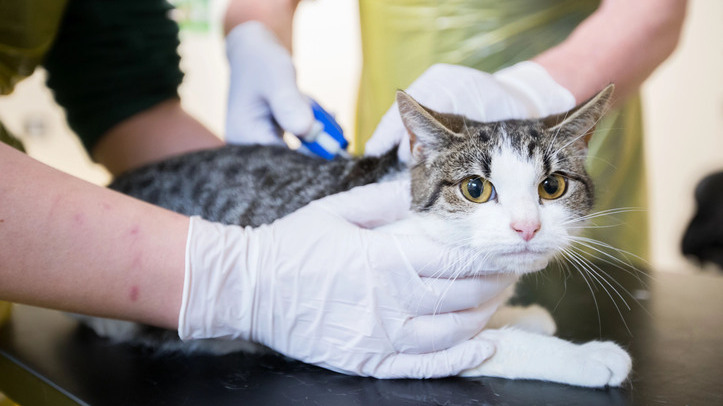The new law requiring pet cats in England to be microchipped comes into force on Monday (June 10).
Cat owners now risk a fine of up to £500 if their pet is not carrying a chip, and owners will also be required to keep their contact details up-to-date on a database.
However, charity Cats Protection estimates that there could be as many as 2.2 million cats in England yet to undergo the process,
Data from the Cats and Their Stats Report 2024, produced by Cats Protection, shows that around 1.9 million cats in England are not microchipped and around 300,000 cats have owners who aren’t sure if their pet is microchipped. According to the research, one in four owners (26%) who haven’t microchipped their pet said their cat doesn’t venture outdoors and around one in five (19%) said their pet didn’t wander far when they did pop out. One in seven (14%) said their cat was identifiable by its collar and another one in seven (14%) said they hadn’t thought about microchipping their cat.
Cats Protection has now joined forces with other organisations including Battersea Dogs and Cats Home, the British Veterinary Association, the British Small Animal Veterinary Association, International Cat Care, PDSA and the RSPCA to issue an urgent plea to owners to get their cats chipped.
Madison Rogers, head of advocacy, campaigns and government relations for Cats Protection, said: “Some owners think they are never going to go through the trauma of losing their pet cat, but in the last year 115,000 pet cats in England went missing and never returned home so this is much more common than people think.
“Cats are nimble and extremely agile and can easily slip out without us noticing. It’s very easy for cats that live indoors to escape, particularly in the summer where it’s so easy to accidentally leave a window or a door ajar.”
“Collars can easily drop off, become damaged so that the address details become unreadable and, if they are not quick release, can become snagged on obstacles like tree branches, causing injuries to the cat.
“In contrast, a microchip is safe, stays with your cat for its lifetime and is linked to contact details that are stored safely in a database. Provided that owners keep the contact details up to date, then a microchip provides the very best chance of being reunited with a lost pet.”
Alice Potter, cat welfare expert at the RSPCA, added: “We have seen cats coming into our care who are sadly not microchipped and may never be reunited with their owners. On average, 11% of all cats coming into the RSPCA’s care are still not microchipped.
“We’ve also rescued cats who have been microchipped but the details haven’t been kept up-to-date which is arguably even more frustrating as it means cats spend a long time in our care whilst we fruitlessly try to contact the owner with out of date information.”
The RSPCA is campaigning for the compulsory microchipping of owned cats to be introduced by the Welsh Government as well.



